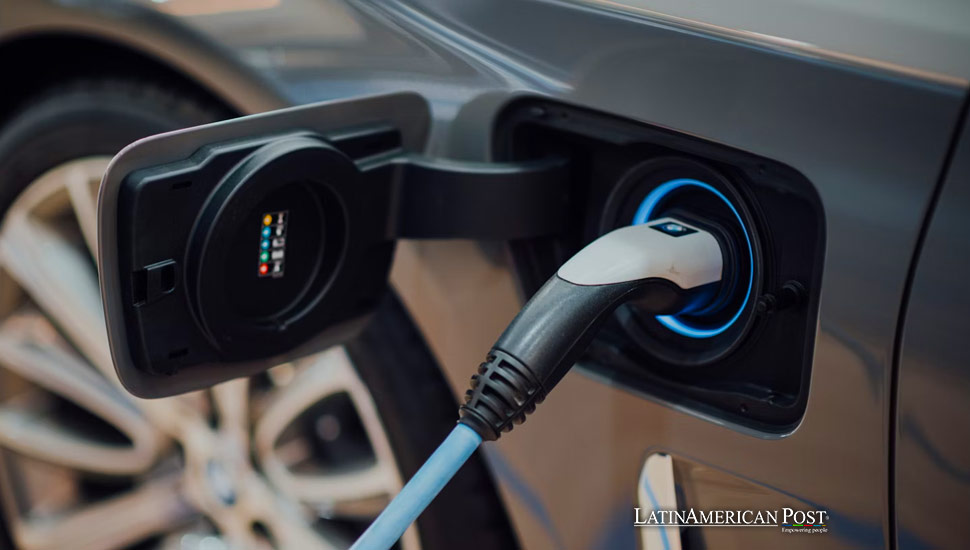Brazilian Niobium Battery Technology Promises Fast Charging for Electric Vehicles

Brazilian miner CBMM and Volkswagen have partnered to test a niobium-based battery that claims significantly faster charging times for electric vehicles, aiming to revolutionize the industry with advanced technology.
Brazilian miner CBMM has embarked on an ambitious project to test niobium-based batteries on Volkswagen electric trucks. The project aims to introduce a game-changing technology that promises significantly faster charging times compared to existing batteries. This innovation could have far-reaching implications for the electric vehicle (EV) industry, potentially accelerating the adoption of EVs in Latin America and beyond.
CBMM, supported by the Moreira Salles family, which also operates the financial giant Itau Unibanco, hopes this project will help it substantially increase revenue from its battery unit. It targets $100 million by 2026. Traditionally focused on selling niobium products to steelmakers, CBMM is now looking to diversify its revenue streams by venturing into the rapidly growing EV market.
At an event held at its Araxa plant, CBMM unveiled a prototype of the new ion battery developed in collaboration with Toshiba. This battery, made with lithium and niobium, boasts a remarkable charging capability. Rodrigo Amado, CBMM’s executive commercial manager at the battery division, explained that the technology enables the battery to be fully recharged within ten minutes when used in an electric bus. This is a significant improvement over conventional batteries, which typically take three to eight hours to charge completely.
The initial tests will be conducted on a single electric bus from Volkswagen Caminhões e Ônibus, the Brazilian unit of Volkswagen’s truck division, Traton. The test vehicle, equipped with four niobium-based batteries, will have a range of 60 kilometers (37.3 miles). CBMM plans to bring this innovative product to market next year, potentially revolutionizing the EV industry with its rapid charging capability.
Longevity and Efficiency
In addition to faster charging times, the niobium-based battery also promises a longer useful life. Executives from CBMM and Volkswagen stated that the battery could last up to three times longer than conventional batteries due to its ability to operate at lower temperatures. This increased efficiency and durability could address some of the most significant challenges facing the EV industry, such as battery degradation and the need for frequent replacements.
Niobium-based batteries’ ability to maintain performance over extended periods and under various conditions makes them an attractive option for EV manufacturers and consumers alike. By reducing the frequency of battery replacements, this technology could lower the overall cost of owning and operating an electric vehicle, further incentivizing adoption.
Latin America’s Role in the EV Revolution
The collaboration between CBMM and Volkswagen highlights the growing importance of Latin America in the global transition to electric vehicles. As the region grapples with environmental challenges and seeks to reduce its carbon footprint, advancements in EV technology can play a crucial role in achieving sustainability goals.
Latin American countries, including Brazil, increasingly focus on renewable energy and sustainable transportation solutions. Developing and implementing niobium-based batteries could position the region as a leader in the EV market, attracting investment and fostering innovation.
Moreover, the success of this project could pave the way for other Latin American companies to explore similar initiatives, leveraging the region’s rich natural resources and technological capabilities. By fostering a collaborative ecosystem, Latin America can contribute significantly to the global shift towards cleaner and more efficient transportation.
Future Prospects and Challenges
While the potential benefits of niobium-based batteries are substantial, several challenges remain. The technology must undergo rigorous testing and validation to ensure its reliability and safety in real-world conditions. Additionally, scaling production to meet market demand will require significant investment and infrastructure development.
The partnership between CBMM and Volkswagen is a promising step towards overcoming these challenges. By combining CBMM’s expertise in niobium production with Volkswagen’s experience in automotive manufacturing, the collaboration is well-positioned to bring this innovative technology to market.
The adoption of niobium-based batteries could revolutionize the EV industry, making electric vehicles more accessible and appealing to a broader audience. Faster charging times, longer battery life, and improved efficiency are key factors that could drive widespread adoption and support the global transition to sustainable transportation.
Also read: Latin American Oil Giants Among Top Global CO2 Emitters
Introducing niobium-based batteries represents a significant advancement in EV technology, potentially transforming the industry and accelerating the shift toward sustainable transportation. As Latin America continues to play a crucial role in this global movement, collaborations like the one between CBMM and Volkswagen will be essential in driving innovation and achieving a greener future.





